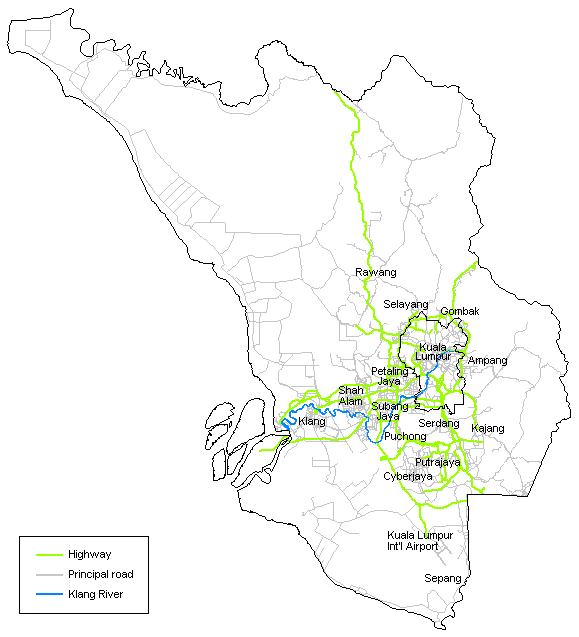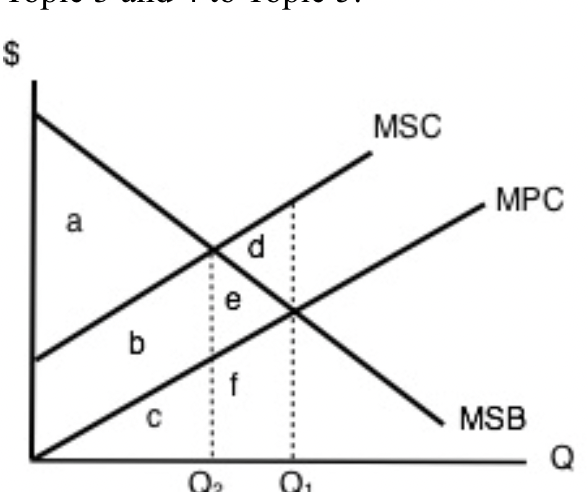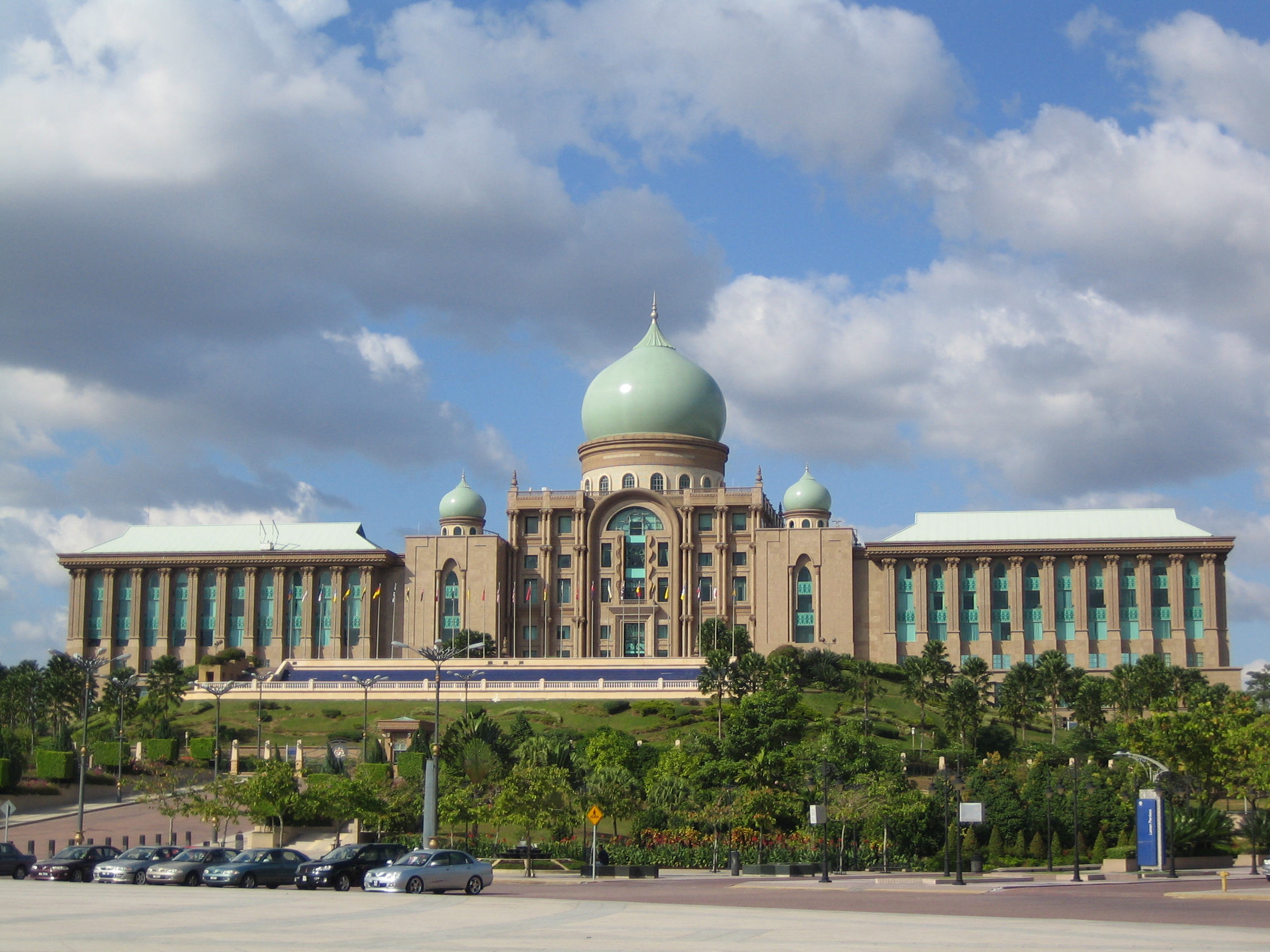|
Malaysia Vision Valley
The Malaysia Vision Valley (MVV; Malay: ; Jawi: لمبه واوسن مليسيا) is a development corridor that encompasses the districts of Seremban and Port Dickson in the state of Negeri Sembilan, Malaysia. The corridor was initially established on 21 May 2015, and it forms the southern continuation of the Greater Kuala Lumpur area. Background The state of Negeri Sembilan has a very close proximity to the heavily developed Klang Valley area and is very well connected via major arteries. Driven by the increase of commuters from the state commuting daily to work, including topographic factors - where the corridor between Kuala Lumpur and Negeri Sembilan is relatively flatter compared to the north - the urban sprawl of the Klang Valley has been seen to push southwards over the years, causing new developments to spur up in bordering districts, especially Seremban and Port Dickson - both are also part of the National Conurbation. Plans of launching a development corri ... [...More Info...] [...Related Items...] OR: [Wikipedia] [Google] [Baidu] |
Special Economic Zone
A special economic zone (SEZ) is an area in which the business and trade laws are different from the rest of the country. SEZs are located within a country's national borders, and their aims include increasing trade balance, employment, increased investment, job creation and effective administration. To encourage businesses to set up in the zone, financial policies are introduced. These policies typically encompass investing, taxation, trading, quotas, customs and labour regulations. Additionally, companies may be offered tax holidays, where upon establishing themselves in a zone, they are granted a period of lower taxation. The creation of special economic zones by the host country may be motivated by the desire to attract foreign direct investment (FDI). The benefits a company gains by being in a special economic zone may mean that it can produce and trade goods at a lower price, aimed at being globally competitive. In some countries, the zones have been criticized for being l ... [...More Info...] [...Related Items...] OR: [Wikipedia] [Google] [Baidu] |
Klang Valley
Klang Valley ( ms, Lembah Klang; zh, 巴生谷; ) is an urban conglomeration in Malaysia that is centered in the federal territories of Kuala Lumpur and Putrajaya, and includes its adjoining cities and towns in the state of Selangor. It is conterminous with Greater Kuala Lumpur, although there are variations between the two. The Klang Valley is geographically delineated by the Titiwangsa Mountains to the north and east and the Strait of Malacca to the west. It extends to Rawang in the northwest, Semenyih in the southeast, and Klang and Port Klang in the southwest. The conurbation is the heartland of Malaysia's industry and commerce. As of 2020, the Klang Valley is home to roughly 8 million people. Origin The valley is named after the Klang River, the principal river that flows through it that starts at Klang Gates Quartz Ridge in Gombak and flows into the Straits of Malacca in Port Klang, The river is closely linked to the early development of the area as a cluster of tin ... [...More Info...] [...Related Items...] OR: [Wikipedia] [Google] [Baidu] |
14th Malaysian General Election
The 2018 Malaysian General Election, formally known as the 14th Malaysian General Election (), was held on Wednesday, 9 May 2018, for members of the 14th Parliament of Malaysia. At stake were all 222 seats in the Dewan Rakyat (the legislature's lower house) and 505 seats in 12 out of the 13 state legislative assemblies of Malaysia. The 13th Parliament of Malaysia was dissolved by Prime Minister Najib Razak on 7 April 2018. It would have been automatically dissolved on 24 June 2018, five years after the first meeting of the first session of the 13th Parliament of Malaysia on 24 June 2013. In an unprecedented victory, the Pakatan Harapan (PH) coalition, which had been the country's federal Opposition prior to the election, won a simple majority in the Dewan Rakyat together with the Sabah Heritage Party (WARISAN), with PH and WARISAN cumulatively securing 121 seats. This is the first time in Malaysia's history that the ruling party has been voted out of power, after the election ... [...More Info...] [...Related Items...] OR: [Wikipedia] [Google] [Baidu] |
Barisan Nasional
The National Front ( ms, Barisan Nasional; abbrev: BN) is a political coalition of Malaysia that was founded in 1973 as a coalition of centre-right and right-wing political parties. It is also the third largest political coalition with 30 seats in the Dewan Rakyat after coalition Pakatan Harapan with 82 seats and the coalition Perikatan Nasional with 73 seats. The Barisan Nasional coalition employs the same inter-communal governing model of its predecessor the Alliance Party but on a wider scale, with up to 14 communal political parties involved in the coalition at one point. It dominated Malaysian politics for over thirty years after it was founded, but since 2008 has faced stronger challenges from opposition parties, notably the Pakatan Rakyat and later the Pakatan Harapan (PH) alliances. Taken together with its predecessor (Alliance), it had a combined period of rule from 1957 to 2018, and was considered the longest ruling coalition party in the democratic world. In th ... [...More Info...] [...Related Items...] OR: [Wikipedia] [Google] [Baidu] |
Spillover Effect
In economics a spillover is an economic event in one context that occurs because of something else in a seemingly unrelated context. For example, externalities of economic activity are non-monetary spillover effects upon non-participants. Odors from a rendering plant are negative spillover effects upon its neighbors; the beauty of a homeowner's flower garden is a positive spillover effect upon neighbors. In the same way, the economic benefits of increased trade are the spillover effects anticipated in the formation of multilateral alliances of many of the regional nation states: e.g. SAARC (South Asian Association for Regional Cooperation), ASEAN (Association of South East Asian Nations). In an economy in which some markets fail to clear, such failure can influence the demand or supply behavior of affected participants in other markets, causing their effective demand or effective supply to differ from their notional (unconstrained) demand or supply. Another kind of spillover is ... [...More Info...] [...Related Items...] OR: [Wikipedia] [Google] [Baidu] |
Eleventh Malaysia Plan
The Eleventh Malaysia Plan (11MP) (Malay: ''Rancangan Malaysia ke-11'') 2016–2020 is Malaysia's five-year development plan towards realising the goal of Vision 2020. The preparation of the 11th Malaysia Plan is based on the National Development Strategy of Malaysia (MyNDS) which focuses on the development of people-based economy and capital-based economy with the implementation of high impact projects. The 11th Malaysia Plan was tabled at House of Representatives by Prime Minister of Malaysia Datuk Seri Najib Tun Razak on 21 May 2015. Cores 11MP has six cores: # Strengthening Inclusive Into the Right People # Increasing People's Prosperity # Enhancing Human Capital Development for Developed Countries # Sustainability and Development Resilience Through Green Growth # Strengthening Infrastructure to Support Economic Growth # Engineered Economic Growth Economic growth can be defined as the increase or improvement in the inflation-adjusted market value of the goods and serv ... [...More Info...] [...Related Items...] OR: [Wikipedia] [Google] [Baidu] |
Najib Razak
Dato' Sri Haji Mohammad Najib bin Tun Haji Abdul Razak ( ms, محمد نجيب بن عبد الرزاق, label= Jawi, script=arab, italic=unset, ; born 23 July 1953) is a Malaysian politician who served as the 6th prime minister of Malaysia from April 2009 to May 2018. In 2020, he was convicted of corruption in the 1Malaysia Development Berhad scandal, one of the largest money-laundering scandals in history. He is the son of former prime minister Abdul Razak Hussein. Najib Razak was the chairman of the Barisan Nasional (BN) coalition from April 2009 to May 2018 and the president of the United Malays National Organisation (UMNO) from November 2008 to May 2018, which had maintained control of Malaysia's government with a parliamentary majority for more than sixty years until the coalition's defeat in the 2018 general election. Najib was elected to the Parliament of Malaysia in 1976, at the age of 23, replacing his deceased father in the Pahang-based seat of Pekan. In the s ... [...More Info...] [...Related Items...] OR: [Wikipedia] [Google] [Baidu] |
Ministry Of Finance (Malaysia)
The Ministry of Finance ( ms, Kementerian Kewangan), abbreviated MOF, is a ministry of the Government of Malaysia that is charged with the responsibility for government expenditure and revenue raising. The ministry's role is to develop economic policy and prepare the Malaysian federal budget. The Ministry of Finance also oversees financial legislation and regulation. Each year in October, the Minister of Finance presents the Malaysian federal budget to the Parliament. The Minister of Finance administers his functions through the Ministry of Finance and a range of other government agencies. Its headquarters is in Ministry of Finance Complex, Putrajaya. Duties and importance The Minister of Finance is the minister in charge of government revenue and expenditure. The Minister oversees economic policy: fiscal policy is within the Minister's direct responsibility, while monetary policy is implemented by the politically independent Central Bank of Malaysia, the head of which is appoin ... [...More Info...] [...Related Items...] OR: [Wikipedia] [Google] [Baidu] |
Prime Minister Of Malaysia
The prime minister of Malaysia ( ms, Perdana Menteri Malaysia; ms, ڤردان منتري مليسيا, label= Jawi, script=arab, italic=unset) is the head of government of Malaysia. The prime minister directs the executive branch of the federal government. The Yang di-Pertuan Agong appoints as the prime minister a member of Parliament (MP) who, in his opinion, is most likely to command the confidence of a majority of MPs; this person is usually the leader of the party winning the most seats in a general election. After the formation of Malaysia on 16 September 1963, Tunku Abdul Rahman, the chief minister of the Federation of Malaya, became the first prime minister of Malaysia. Appointment According to the Federal Constitution, the Yang di-Pertuan Agong shall first appoint a prime minister to preside over the Cabinet. The prime minister is to be a member of the Dewan Rakyat (House of Representatives), and who in his majesty's judgment is likely to command the confidence ... [...More Info...] [...Related Items...] OR: [Wikipedia] [Google] [Baidu] |


.jpg)

.jpg)
